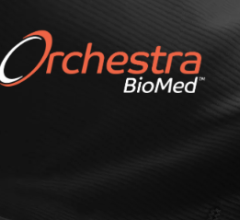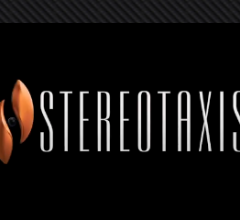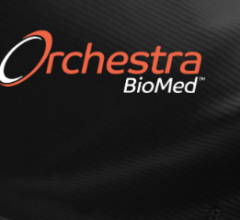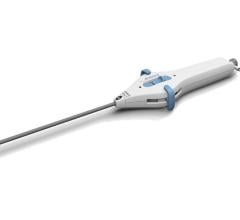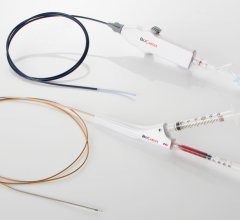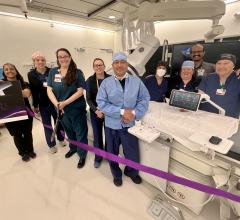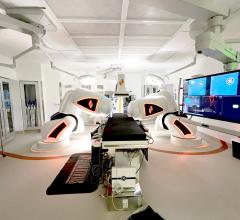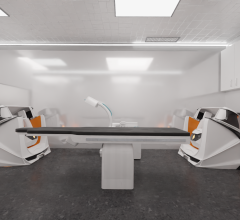
March 6, 2009 - Transoma Medical Inc.’s Sleuth AT wireless, automated implantable cardiac monitoring system was implanted in its first U.S. patient on March 2 at the Ohio State University Medical Center.
Under the supervision of Mahmoud Houmsse, M.D., Troy Rhodes M.D., an electrophysiology fellow, performed the implant. The company received FDA 510(k) marketing clearance for the product on Feb. 11, 2009. A U.S. launch is under way to introduce Sleuth AT to physicians who manage patients with complex arrhythmias as well as patients who experience infrequent, unexplained symptoms such as fainting or palpitations.
“The implant went very well and took only about 15 minutes,” reported Dr. Houmsse. “This new system also offers the option of a longer 8 cm antenna which showed very impressive, high-quality ECG signals even before the incision was closed.”
With Sleuth AT, physicians can now choose to program the capture of high-quality ECG strips at frequent intervals, providing insight into complex arrhythmias, which are often asymptomatic and frequently changing. These captured ECG strips are automatically transferred to a 24/7 monitoring center, staffed by certified cardiac technicians, who classify and notify physicians of the presence of a wide variety of cardiac arrhythmias such as ventricular tachycardia, bradycardia, supraventricular tachycardia and atrial fibrillation (AF).
“Transoma’s enhanced Sleuth system is an exciting new development for physicians who manage difficult and changing complex arrhythmias such as atrial fibrillation,” said John Hummel, M.D., also from the Ohio State University Medical Center. “Although some therapies appear to be curative, one needs to be certain that the benefits are lasting. With Sleuth AT, I can sample 20-second ECG strips as often as every 7.5 minutes and be alerted through the monitoring center of recurrence of these arrhythmias. The Sleuth AT will provide baseline cardiac information prior to a planned AF ablation procedure and will help me monitor for recurrence of AF after the procedure. Regardless of the outcome, the access to long-term monitoring will allow me to manage the patient’s need for medications, including anticoagulation therapy.”
As a complete, remote and automated system, the Sleuth AT Cardiac Monitoring System includes the implantable loop recorder, the personal diagnostic manager, the base station and a 24/7 monitoring center operated by Medicomp.
At the third-party monitoring center, certified cardiac technicians review the patient’s ECG data and provide information to the physician to aid in diagnosis and ongoing treatment. Physicians can access this information via a secure Web portal, and have the reports faxed or e-mailed to them as they prefer. If the cardiac technician observes a particularly concerning arrhythmia, the patient’s physician will be contacted immediately.
For more information: www.transoma.com.


 January 29, 2026
January 29, 2026 
